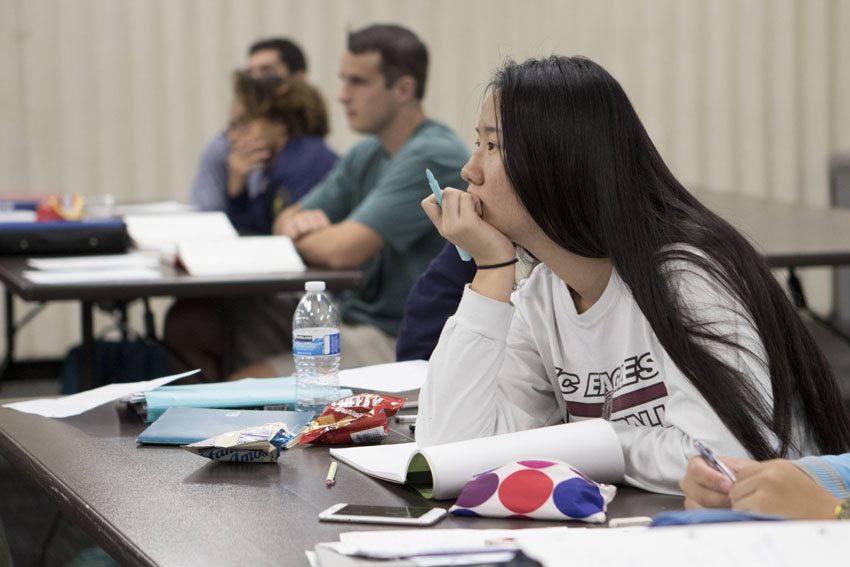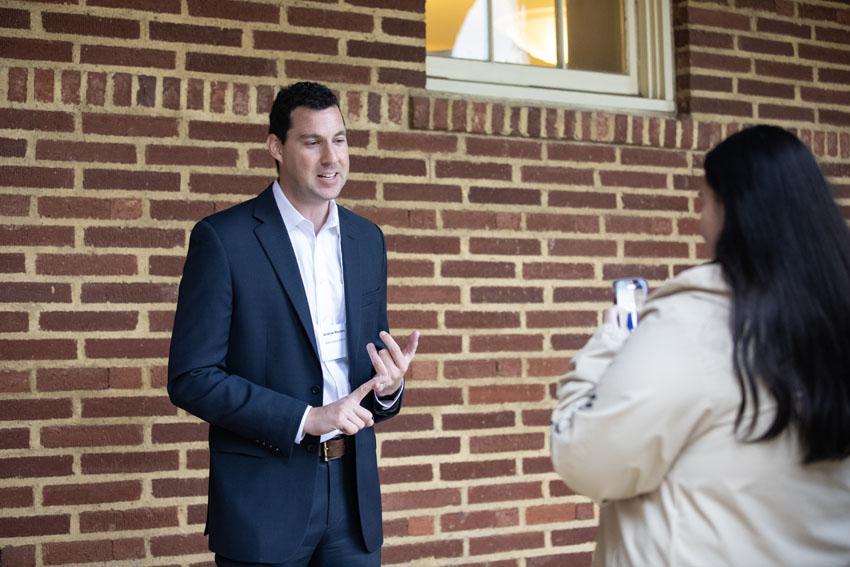
Exchange students compare academic rigors to American school
It is often said that despite the many opportunities and good schools in the United States, the education system in other countries is much more complex. The school environment, according to exchange students here on campus, is much more easygoing in US than in the countries they came from.
When exchange students begin to attend a school in US, lack of language knowledge without a doubt is not the only struggle they face. The drastic change of academic environment and school curriculum is also one of the biggest challenges.
School years in the US often seem much more enjoyable than in many other nations because of the many options and opportunities being offered. Schools in Europe and Asian countries focus on academics more than on fields of art and creativity, taking away the chance for students to discover their talents or simply enjoy themselves at young age.
An exchange student Joey Huang, ’18, from China describes education in her country as challenging and serious. Huang appreciates the oppurtunity to have free time with her education in America. She felt like she was under a lot of pressure in China.
“I think there is a lot of stress,” Huang said. “Everyone is so competitive over their grades in China, and there is so much work that we almost never had any time for ourselves. Some of the things we had to study didn’t interest me at all, and that just made it harder. I definitely felt a lot of pressure because tests in China meant everything, and no one bothered to look at the daily efforts or class participation. Off course my parents expected me to succeed in everything because without good grades I am basically nothing.”
In many countries, going to a good college is important. Dana Kwon, ’17, another exchange student from Korea, also says that education in her country is viewed as important and essential. Kwon adds that many parents push their students, hiring tutors for them.
[fusion_soundcloud url=”https://api.soundcloud.com/tracks/287677580″ params=”auto_play=false&hide_related=false&show_comments=true&show_user=true&show_reposts=false&visual=true” width=”100%” height=”150″ iframe=”true” /]
“Koreans think education is very important,” Kwon said, “Going to good colleges is important as well. Students are under a lot of pressure when it comes to getting into good universities. Many Korean parents send their children to academies or find tutors for them to improve even if they do not want to. I think Korean education is pretty intense. My friends from there were very stressed out about the upcoming exams, because of the high expectations their parents have.”
While most schools in America offer many class and schedule options for students, other countries keep one schedule for everyone in the same grade. Students are required to take all classes on the class list, and it is simply impossible to skip anything.
Fiona Soto, ’19, studied in Germany for two years, where she enjoyed the academic challenges and the more complex education system.
“I’d say the things I learned in Germany were more advanced than what I had learned in the U.S.A., which I really liked,” Soto said. “We don’t get to pick our own schedules, as they are picked out for us. So, you are basically with the same group of people for every single period, and the periods we go to are different throughout the week. Here in U.S.A. we have the same monotonous schedule and are not as close with our peers.”

Some exchange students believe that education in their country was more challenging than in America. Natasha Le, ’17, came to the US as an exchange student from Vietnam and finds both environment and school program very different in both nations.
“Studying in Vietnam is more difficult than in U.S.A.,” Le said. “The education program is Vietnam is higher and harder than the one here. Students in Vietnam learn and know many things, but they don’t really have the opportunity to apply their knowledge.
“I think the system there is old-fashioned,” Le continued. “We don’t use electronic devices or have study hall like here in US, and students don’t dare to ask questions in class even if they don’t understand something for fear of being put down by the teachers.”
Both schools in U.S.A. and abroad have their own good and not so enjoyable sides. Stephen Walters, ’18, went to school in California his whole life and argues that despite the many opportunities and freedoms, certain parts of the education system here are outdated and simply unnecessary.
“In the United States, we have an education system formed around going to college,” Walters said. “In other countries education ends earlier and prepares students for a profession as an apprentice. I feel that the U.S.A. is slipping because no job that pays a livable wage will hire you without a four-year degree. So despite your talents, you are considered less intelligent until you spend four years sitting and learning, when you could be making a life for yourself.”
Regardless of all the views and opinions, every school, whether in the U.S.A. or abroad has its strong and weak points. Moreover education is a very useful tool that can help anyone reach the place where they want to be in life.
To read another academic article check out, College Corner: New FAFSA application processing available, Oct. 1.
This writer can be reached via email: Tatiana Iest.




